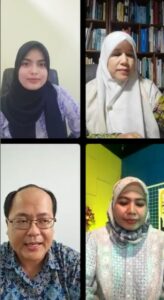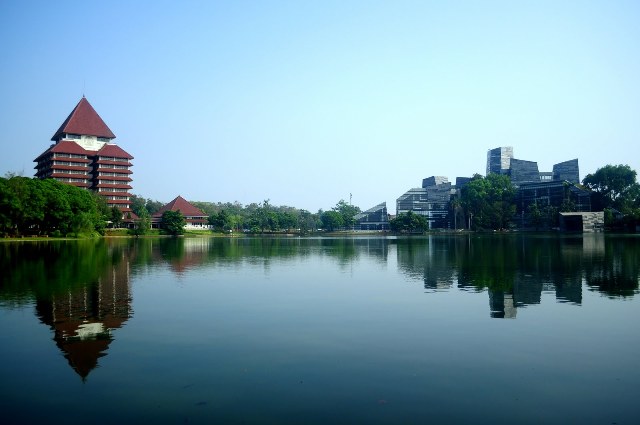On October 24th, 2024, UI GreenMetric held an IG Live discussion titled “Water Wise: Strategies and Impact of Universities on Urban Water Management.” This event was a collaboration between Universitas Katolik Parahyangan, Universitas Airlangga, and Universitas Lampung, featuring three speakers: Albert Wicaksono, Ph.D., from Universitas Katolik Parahyangan; Dr. Nurina Fitriani, S.T., from Universitas Airlangga; and Prof. Dr. Dyah Indriana Kusumastuti, ST, MSc., from Universitas Lampung.This session was moderated by Rayhana, S.Gz, A partnership Specialist of UI GreenMetric.
The discussion focused on the growing issue of urban water management. Increasing demand and the added pressures from climate change make it essential to find sustainable water solutions. As knowledge hubs, universities have a key role to play in addressing water challenges in cities through research, education, and collaboration.
The discussion began by exploring the main challenges cities face in water management and why public awareness is crucial. Dr. Nurina explained that unpredictable seasons have a major impact on both water quality and quantity. Coastal areas, for example, experience a drop in water quality from upstream to downstream, making it difficult for water utilities to provide clean, safe water. Albert Wicaksono added that dense urban populations and heavy land use impact water availability and often lead to flooding, as there is less open space to absorb water. Prof. Dr. Dyah also highlighted how climate change worsens water shortages in dry seasons and intensifies floods during the rainy season, emphasizing the need for increased public awareness
Next, the speakers discussed how universities can help address urban water management and shared examples of campus-led initiatives. Prof. Dr. Dyah shared that universities contribute through research, community outreach, and partnerships with government agencies, such as city drainage planning and water storage projects on the Universitas Lampung campus. Albert highlighted a “pentahelix” approach in West Java, involving government, business, community, academia, and media, where universities not only research water management but also help build sanitation facilities and manage domestic waste alongside NGOs. Dr. Nurina added that academia helps communities understand water regulations by conducting studies on water quality in rivers and monitoring pollution in areas like East Java.
The conversation then shifted to integrating sustainability into the curriculum to prepare future leaders. Albert explained that Universitas Padjadjaran includes sustainability and water management topics in the curriculum, and the “Merdeka Belajar Kampus Merdeka” program enables students to work directly with communities along rivers. Prof. Dr. Dyah shared that in civil engineering, water management courses help students and faculty gain real-world experience in community settings. Dr. Nurina added that Universitas Airlangga requires all new students to take a course on the Sustainable Development Goals (SDGs), specifically on water and sanitation, to build awareness of clean water challenges.
The panelists then discussed ways for effective collaboration among stakeholders. Dr. Nurina noted that working with communities can be challenging, as each group has unique characteristics and may not see water issues as urgent, so tailored approaches are needed. Albert highlighted that in projects like the Citarum River cleanup, academics serve as a bridge between government, community, and business interests, such as monitoring factories that may pollute. Prof. Dr. Dyah emphasized the need for collaboration to ensure that government intentions are understood and implemented by the community, especially in sensitive projects like irrigation in Lampung.
The discussion concluded with recommendations to improve awareness and sustainable actions. Prof. Dr. Dyah expressed hope for better land management to reduce urban flooding. Dr. Nurina suggested that students gain hands-on experience with communities, which can deepen their understanding of water management. Albert encouraged academic communities to initiate research-based activities that impact society, motivating students to develop relevant projects. The speakers agreed that water management is a pressing issue in cities, and universities, along with other stakeholders, play a critical role in raising awareness and working toward solutions. UI GreenMetric will continue hosting IG Live discussions and other programs to keep the conversation on sustainability going. Follow us on social media for updates on upcoming IG Live events!
 Written by Salsabila D. Rahmiziri - Communication Intern
Written by Salsabila D. Rahmiziri - Communication InternEditor: Riska P. Hariyadi
